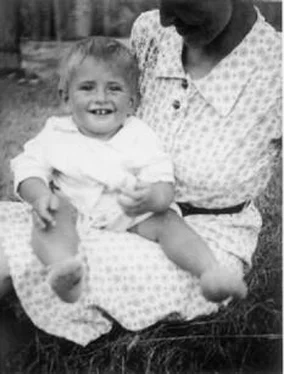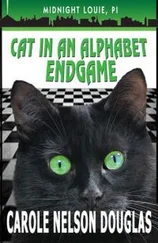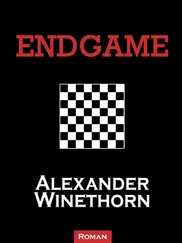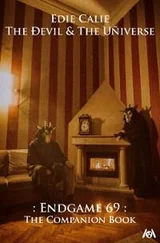Bobby self-published the essay in a fourteen-page booklet, with red-and-white stripes on the front to resemble cell bars, and signed it “Robert D. James (professionally known as Robert J. Fischer or Bobby Fischer, The World Chess Champion).” He had ten thousand copies printed, which cost him $3,257. How in his near destitute state he was able to obtain the needed money is not known. He sold his essay for $1 a copy, and Claudia Mokarow handled the distribution and sales. Breaking his own privacy rules, Bobby even included a PO box number that he could be written to in care of so that the reader could order “additional copies.” Ironically, he ended up making money from the project—after the printing, shipping, and advertising costs were deducted. Twenty-five years later, an original copy of I Was Tortured … was selling as a collector’s item for upward of $500. A collector asked Pal Benko to see if Bobby would autograph a copy of his j’accuse . Benko requested and Bobby refused: “Yes, I wrote it, but I had a terrible time in that jail. I want to forget about it. No, I don’t want to sign it.”
The pamphlet is important in offering a glimpse of Bobby’s state of mind at that time (May 1981): It shows his utter outrage in being manhandled and falsely accused; his refusal to bend to authority; his use of a pseudonym (even Regina had begun to address her letters to him as “Robert D. James,” the “D” standing for “Dallas”) for self-protection; and his designation of himself as “The World Chess Champion.” Regarding this self-description, Bobby explained to a friend that he had never been defeated. He resigned the FIDE World Championship, but he believed the true World Champion’s title was still rightfully his. Further, he claimed that he had not won the World Championship in Iceland in 1972; he already was the World Champion: His title was stolen, he said, by the Russians.

Bobby’s life, post-Reykjavik, has been referred to by the press as his “Wilderness Years,” as indeed they were: living in the seamy underside of Los Angeles for the most part, twenty years out of view, refusing offers of money, on the edge of vagrancy, attempting to evaporate into anonymity so as to be shielded from perceived threats.
Money, however, was still available if he chose to avail himself of it. But the complications in getting it to him, or having him accept it, were enormous. First, those who had offers had to find him, not an easy task because he kept changing his address, gave his telephone number to virtually no one, and didn’t have an answering machine. His use of an alias also increased the difficulty of tracking him down. The mailbox at one of his apartments read “R. D. James.” Second, if contact was made, he’d never accept the first offer, and he usually named an amount that was double or triple—or more—pricing himself out of the market. Third, he refused to sign any contracts, making it impossible for most corporations or individuals to proceed with any kind of legally binding arrangement. Stories were told, unconfirmed by this writer, that when he was flat broke, he’d accept short telephone calls from chess players at a charge of $2,500 each, and would also give lessons over the phone for $10,000. If the stories were true, how these calls were arranged, how long they lasted, and who made them aren’t known.
It is known that the Canadian Broadcasting Corporation wanted to interview Bobby for a documentary: He demanded $5,000 just to discuss it over the phone, with no promises of anything else. The network refused. A reporter from Newsday , which had one of the largest circulations of any daily tabloid in the United States, sought an interview with Bobby and was told by Claudia Mokarow to “go back to your publisher and ask for a million dollars, and then we’ll talk about whether Bobby will grant you an interview.” Carol J. Williams, a reporter for the Los Angeles Times , approached Bobby for an interview and was told his required fee was $200,000. His request was refused “on principle.” Freelance photographers were willing to pay $5,000 to anyone who could arrange just to locate Bobby so they could take a single photograph, and perhaps pay $10,000 to Bobby if he’d allow the picture to be taken. It never happened. Edward Fox, a freelance journalist for the British Independent newspaper, wrote of Bobby: “The years passed, and the last extant photographs were growing more and more out of date. No one knew what Bobby Fischer looked like any more. Into the vacuum of his non-presence rushed a fog of rumors and fragmentary information. He existed as a vortex of recycled facts and second-hand quotes. Every now and then there would be a ‘sighting’ of a forlorn, bearded figure.”
A sensationalistic television show, Now It Can Be Told , spent weeks in the early 1990s trying to capture the reclusive Bobby for their broadcast, and managed to film him for a few seconds in a parking lot, getting out of an automobile, en route to a restaurant with Claudia Mokarow and her husband.
Bobby Fischer! It was the first time he’d been seen by the public in almost two decades. His pants and jacket were wrinkled, but he didn’t look as derelict as some of the press accounts had indicated. Aside from the fact that his hair was thinning and he’d put on weight and grown a beard, he was the unmistakable, broad-shouldered, swaggering Bobby Fischer.
12
Fischer-Spassky Redux

BOBBY’S CHESS DRAGON was not only stirring in the cave, it was lashing its tail. Perhaps because he could no longer tolerate his downtrodden life, living off his mother’s checks and receiving just an occasional trickle of cash from here or there, Bobby wanted to get back to the game … desperately. But his urge to rejoin the fray wasn’t all about remuneration—it was the call to battle, the game itself, that he missed: the prestige; the silence (hopefully) of the tournament room; the sibilant buzz of the kibitzers (damn them); the life of chess. Jonathan Swift defined war as “that mad game the world loves to play.” Fischer felt exactly the same way about chess. But could he find his way, existentially, back to the board? Hermann Hesse, in his masterful novel Magister Ludi (The Glass Bead Game) , told of someone whose knowledge of “the game” was Fischer-like: “One who had experienced the ultimate meaning of the game within himself would no longer be a player; he would no longer dwell in the world of multiplicity and would no longer delight in invention, construction, and combination, since he would know altogether different joys and raptures.” The difference is that the joys and raptures away from the board weren’t really there for Bobby.
Spassky provided a way back to the board. He contacted Bobby in 1990 and informed him that Bessel Kok, the man who was running for the presidency of FIDE that year (1990), was interested in organizing a Fischer-Spassky rematch, and there might be millions—although not the $5 million he’d passed up in 1975 for a match with Karpov—available for the prize fund.
Kok, a Dutch businessman of extreme wealth, was president of a Belgium-based banking company, SWIFT, and was responsible for organizing several international tournaments. Kok had a noble agenda: He wanted Bobby to continue his career, and he wanted to be a privileged witness to his games, as did almost all chess players.
A meeting was planned to discuss the match, with Kok agreeing to pay all the expenses for Bobby to fly, first class, to Belgium and be lodged at the five-star Sheraton Brussels Hotel. To avoid journalists, Bobby checked in under the name of Brown. He mentioned to Kok that he’d need some cash for pocket money upon arrival. Twenty-five hundred dollars in cash was waiting for him at the hotel.
Читать дальше




![Антон Текшин - EndGame [СИ]](/books/394477/anton-tekshin-endgame-si-thumb.webp)









